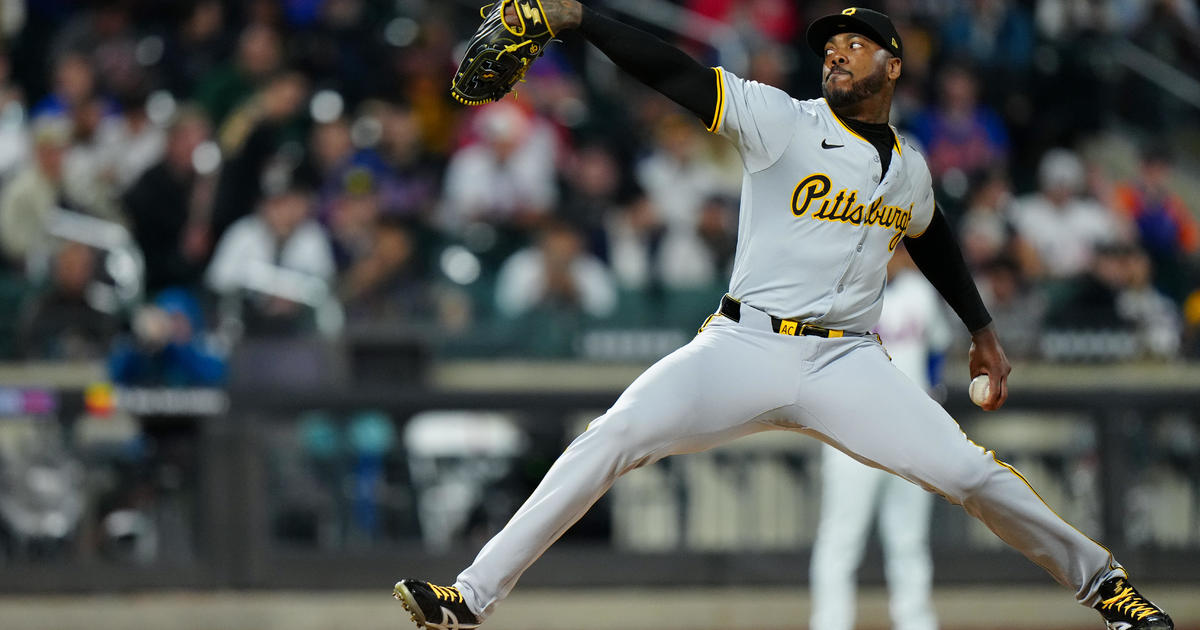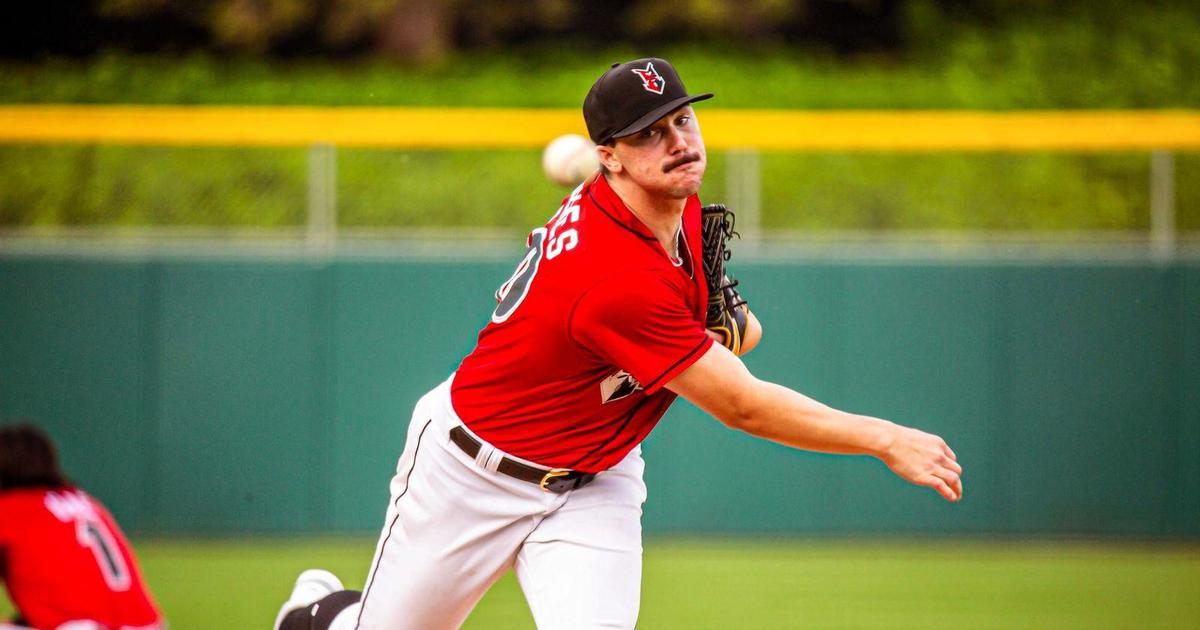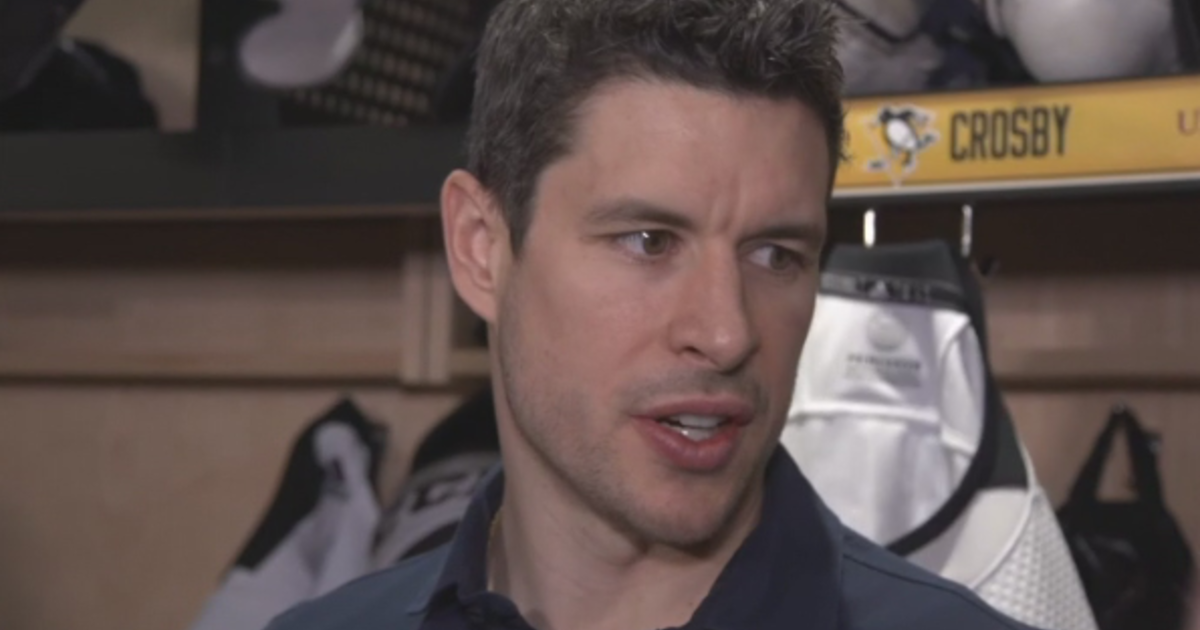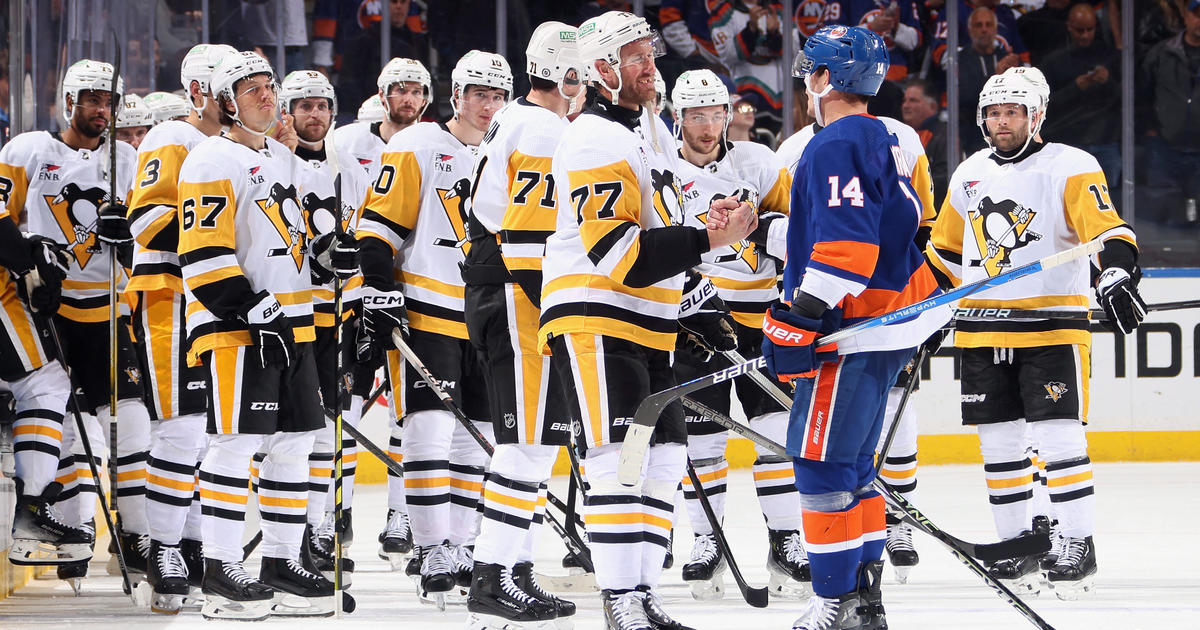Dunlap: Pitchers & Helmets Seems To Be A Simple Fix
Jared Hughes is using his head.
Mark Melancon might, too.
Major League Baseball should put its head together with their minor league system and get this thing right --- take the decision out of players' hands.
Over the past week during Spring Training drills, Melancon and Hughes (both relief pitchers for the Pittsburgh Pirates) have begun wearing new protective headgear on the pitching mound that has the potential to offset serious injury --- or worse --- as a result of a comebacker striking a pitcher in the head.
You know the kind of line drives and the doinks off the melon, right?
They happen each summer.
The kind that make a sound that sounds like your knuckles loudly hitting a piece of wood, where the ball careens on a fly out toward second base somewhere and the umpire immediately screams for time out.
Panic sets in.
Little kids get freaked out in the stands and their parents cover their eyes.
Everyone cringes.
The guy who hits the ball doesn't know what to feel as he makes his way toward first.
Medical personnel rush out to the pitcher who many times is writhing on the ground in a now-hushed stadium and, somehow, he either gets up or is loaded on a backboard and a couple days later is talking abut the ordeal.
Every single time, however, it is scary as can be when one of those comeback liners drills the head of a pitcher and, I don't know what you do, but I say to myself, "Someday someone might not get up."
To me, that feels like the reality of it with increasing velocity off pitchers' arms and, as a result, heightened exit speed with those liners.
Perhaps that is what has been going through his mind as Hughes decided to wear one of those helmet-type contraptions this Spring Training and, maybe, beyond.
He told the Pittsburgh Tribune-Review: "When I weigh the pros and cons, the only thing that's bad is that it might not look normal and I'll get teased, which I couldn't care less about. It's going to keep me safer, and it feels comfortable."
Melancon, on the other hand, was a bit more on the fence, largely due to aesthetic reasons. He told the Trib: "Just because of the looks, it might not be something that I wear during the season."
How about this idea: Let's take it out of the players' hands. Do it in a soft-launch of sorts.
You see, the 10-ounce carbon fiber cap (that honestly is a bit ugly) has been introduced under a joint initiative with the union and Major League Baseball and isn't mandatory, but I don't understand why any player wouldn't want to be as safe as possible if it doesn't impact the way they go about their business.
Which leads me to this: I'm the last guy who is hyper-reactionary or overly cautious, but if Major League Baseball and the Players' Association really feel such a helmet is a good idea, why not push efforts to make it mandatory in the minor leagues as quickly as possible?
That is to say, go ahead and implement it in the minors with a predetermined time when you are going to implement it into Major League Baseball. This will give all the pitchers coming through the minor ample time to adjust.
For example, make it mandatory starting next season in the minors and then in, say, 2019 and moving forward in Major League Baseball.
This would give the guys in the minors an acclimation period in games and guys in the majors ample time to wear it in games if they wanted to or, at the very least, a preparedness period to get ready.
Seems simple to me.
If they are hell-bent on having pitchers wear some kind of safety headgear, a few heads should just come together and make this happen.
Colin Dunlap is a featured columnist at CBSPittsburgh.com. He can also be heard weekdays from 5:40 a.m. to 10 a.m. on Sports Radio 93-7 "The Fan." You can e-mail him at colin.dunlap@cbsradio.com. Check out his bio here.



